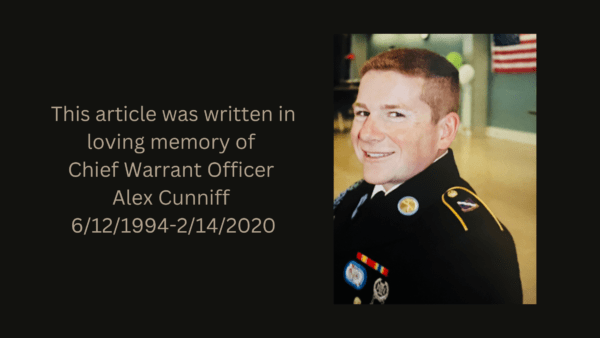This is the seventh edition of The 2 Susans, a monthly LinkedIn newsletter produced by Dr. Susan Baumgaertel and Dr. Susan Vogler.
We are two doctors who are curious about aging. Our newsletter embraces conversations about aging from many different perspectives—medical, psychological, societal and even personal. Of course we’ll have a lot of content that pertains to peri/menopause and beyond.
To read the October edition, click here. To read this new edition on LinkedIn, click here.
Enjoy the reprint below!
A Salute to Veterans Day
This month we pay our respects to our country’s active duty service members and veterans, just in time for Veterans Day. Dr. Baumgaertel mentions support for women in the service, post-deployment reintegration, and her personal connection to the U.S. Navy. Dr. Vogler reminds us about the stigma of mental health issues in the military and provides links to a few online resources for veterans and their families.
Susan B:
When my daughter started serving as an officer in the U.S. Navy over two years ago, I never imagined that just a few weeks into her first deployment she’d be continuously in harm’s way. After almost eight long months in the Middle East, it was a relief to welcome her back stateside—a combat-decorated, active-duty service member.
At first it seemed rather selfish to think of my own needs while processing the extreme stress that she had to endure. But, I was quickly able to put things into proper context.
☯️ Disturbed sleep due to menopause? At least I wasn’t being targeted by ballistic missiles, cruise missiles and drones while trying to sleep.
☯️ Indigestion after eating some questionable takeout? At least I had options as to my food choices and sources.
☯️ Craving alone time to decompress and manage stress? At least I didn’t have to spend 236 days 24/7 in close quarters with 328 others.
The ability to find perspective can be life-affirming in many ways.
Active-duty and retired veterans often have a tough road to follow after deployment and after military service—reintegration is a complex process. They belong to a family that many people will never truly understand or even embrace. Fortunately, it’s a family that can also be highly supportive.
Another aspect to all this is the major deployment of women in a war—for U.S. active-duty service members this was a first during the Gulf War. Somehow that didn’t make it any easier for me when my daughter’s deployment dramatically shifted soon after the events of October 7, 2023. There were many female officers aboard her destroyer, and they performed equally with their male cohort.
I have always appreciated our veterans—even more so, now that I have a personal connection to the military. We should all be grateful that our country’s active-duty service members and veterans are protecting/have protected our civil liberties. The ACLU continues to defend these liberties, regardless of the political polarization of modern times.
Veterans Day commemorates the service of all U.S. veterans.

Giant American flag hanging in the Boston Rowes Wharf rotunda. Photo credit: Dr. Susan Baumgaertel, October 19, 2024.
Susan V:
Breaking the Silence
I paused when Susan B. proposed that we explore the medical and mental health-related challenges faced by military personnel and veterans. I had no direct ties to the military and did not grow up in a military family. This changed when one of my closest friends lost her son to suicide in his mid-20s while serving in the Armed Forces. Feeling shocked and devastated, I asked how it is possible that this young man, who was incredibly talented and full of promise, could take his life, while no one knew he was suffering in his own place of silence.
I have learned mental health issues among military personnel have garnered increasing attention in recent years, particularly concerning depression, anxiety, and suicide. The unique stresses of military life, including deployment, combat exposure, and the transition to civilian life, contribute significantly to these challenges.
The armed forces often require individuals to endure high-stress situations that can lead to psychological strain. Many service members experience trauma, whether from direct combat or the emotional toll of witnessing suffering. This exposure can result in conditions such as post-traumatic stress disorder (PTSD), depression, and anxiety.
Despite the growing recognition of mental health issues, stigma is still a significant barrier to seeking help. Many service members fear that admitting to mental health struggles may be perceived as a weakness, potentially affecting their careers and standing within the military community. This stigma can deter individuals from accessing the support they need, worsening feelings of isolation and despair.
The suicide rate among military personnel is a grave concern. Recent statistics show that active-duty service members and veterans experience suicide rates that are alarmingly higher than those in the general population. Factors contributing to these rates include untreated mental health issues, substance abuse, and a lack of social support. According to the US Department of Veteran Affairs, approximately 30% of veterans have a confirmed mental health disorder and around 25% of active-duty members have indicated they suffer from a mental health condition. Each day approximately 22 veterans take their own lives according to a study performed by the US Department of Veteran Affairs in 2013.
Recognizing these challenges, military organizations and mental health professionals have started various programs aimed at improving mental health support. These include enhanced training for leaders to recognize signs of mental distress, the establishment of confidential support hotlines, and the implementation of resilience training programs. Additionally, efforts are underway to reduce stigma, encouraging service members to seek help without fear of judgment.
Many organizations are committed to supporting and advocating for veterans and their families, and below is a partial list of resources:
On this day, November 11, we celebrate Veterans Day, honoring and thanking all who have served in the United States Armed Forces, during wartime and peacetime.

Photo provided by Dr. Susan Vogler.
🗓️ Our December edition will wrap up the year with “Navigating Skin Changes.”
📝💬 The 2 Susans would love to hear from you!
Let us know the aging topics YOU are curious about. Please also share this newsletter in your network and tag us—we are so grateful.
Susan B: susan@mymdadvocate.com
LinkedIn, myMDadvocate, MenopauseMenu, The Menopause Menu book
Susan V: susan@voglermedical.com
The 2 Susans newsletter is for informational purposes only. It does not represent medical advice and is not intended as a substitute for professional advice, diagnosis, or treatment. Always consult with your private physician.